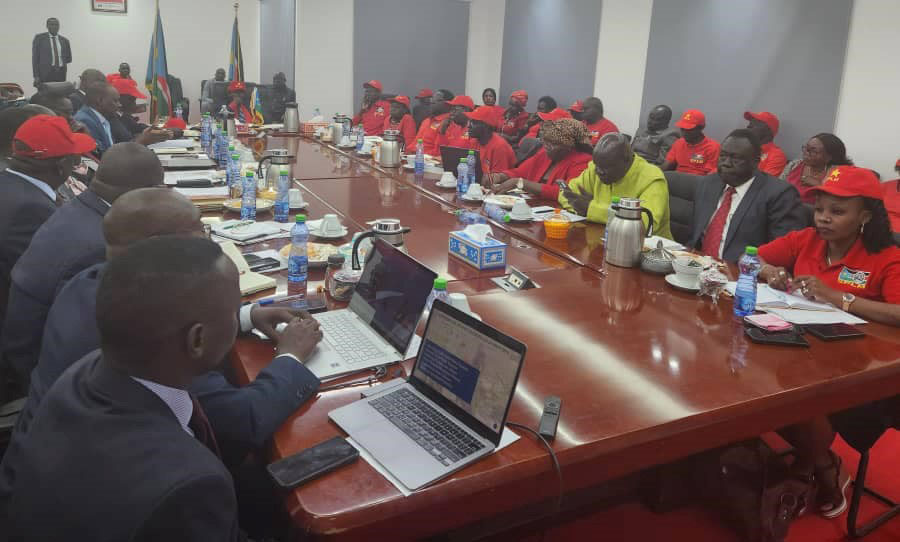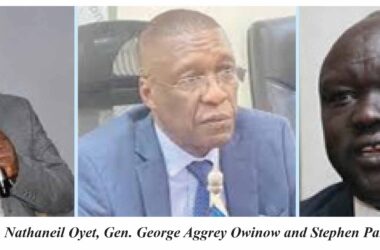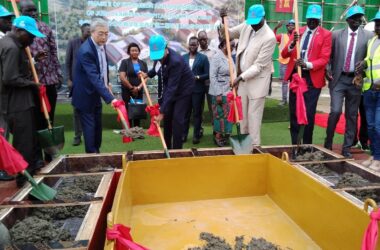By Yiep Joseph
Sudan People’s Liberation Movement (SPLM) Economic Taskforce convened a meeting on Tuesday to discuss the worsening economic situation in the country.
The meeting, held at the SPLM headquarters, included key figures such as Vice President for the Economic Cluster and Deputy Chairperson Dr. James Wani Igga, Senior Presidential Advisor and SPLM Deputy Chairperson Kuol Manyang, Finance Minister Dr. Marial Dongrin, South Sudan Revenue Authority Commissioner Akuei Deng, and representatives from the Bank of South Sudan, among others.
South Sudan is currently facing a severe economic crisis, marked by the depreciation of its currency against the US dollar.
In the parallel market exchange rate, the US dollar trade between SSP 4800 and SSP5,000, exacerbating inflation and widespread hardship.
Coupled with the hike in prices in the market, government workforce has not been paid for a year, making them to hardly afford food, shelter, medication, and other necessities.
In addition, the government’s ability to deliver essential services has been severely hampered, with a focus primarily on operational costs and salaries.
The economic crisis, however, did not only create a gap between the citizens and their politicians but also eroded the trust that will likely be reflected in the upcoming elections in 2026.
According to the statement from Vice President for economic cluster press unit, the SPLM meeting focuses on ways to pay the salary arrears of the country’s workforce as well as improving the economy.
“The meeting focused on briefing from the economic sectors on means to address and improve the current economic challenges facing the nation,” the statement partly read.
“The meeting concentrated on how to prioritize payments of civil servants’ salaries and arrears,” it read.
In his remark to the party members, Vice President James Wani Igga, who is also chair of the Ministerial Economic Cluster as well as the party’s 1st Deputy Chairman, called for discipline in the party.
He advised the party members in the government institutions to cooperate and work as a team.
“The resumption of oil shall impact the reduction of the inflation rate of South Sudanese pounds against the dollar.”
On his part, Eng. Kuol Manyang, SPLM 3rd Deputy Chairman and Senior Presidential Advisor, expressed party commitment toward economic recovery.
He called on the party officials at their different capacities to prioritize agriculture in order to fight hunger in the country.
Kuol called on the members to continue to engage in peace dissemination.
Meanwhile, Peter Lam Both, the party Secretary General, expressed optimism on oil resumption.
He expressed that oil resumption remain a positive move to improve the economic situation.
Last year the Speaker of the Transitional National Legislative Assembly (TNLA), Jemma Nunu Kumba, called on the SPLM economic task force to help as the economic situation continues to worsen.
While addressing the party members, speaker Nunu appealed to the Sudan Peoples Liberation Movement (SPLM) leadership to spend more energy on solving the economic crisis.
She reached out to the SPLM economic task force to bring new ideas that could help the government solve the continuing economic crisis in the country.
“Our (SPLM) economic taskforce helps bring us ideas to solve the economic problem,” Nunu said.
Nunu emphasized the need for the task force to generate positive ideas that would aid the government institutions in tackling the crisis.
Also in May 2024, President Salva Kiir Mayardit instructed government institutions and the Sudan People’s Liberation Movement (SPLM) party’s economic task force to focus on improving the country’s economy.
Kiir gave these instructions during the Greater Equatoria SPLM rally, where he was endorsed as the sole party flag bearer for the December 2024 general election.
“To this effect, the SPLM economic taskforce has taken the following measures: one, authorize investment in the agricultural sector through agricultural banks; two, empower local companies in order to supply basic commodities to bring prices down in the market,” Kiir stated.




